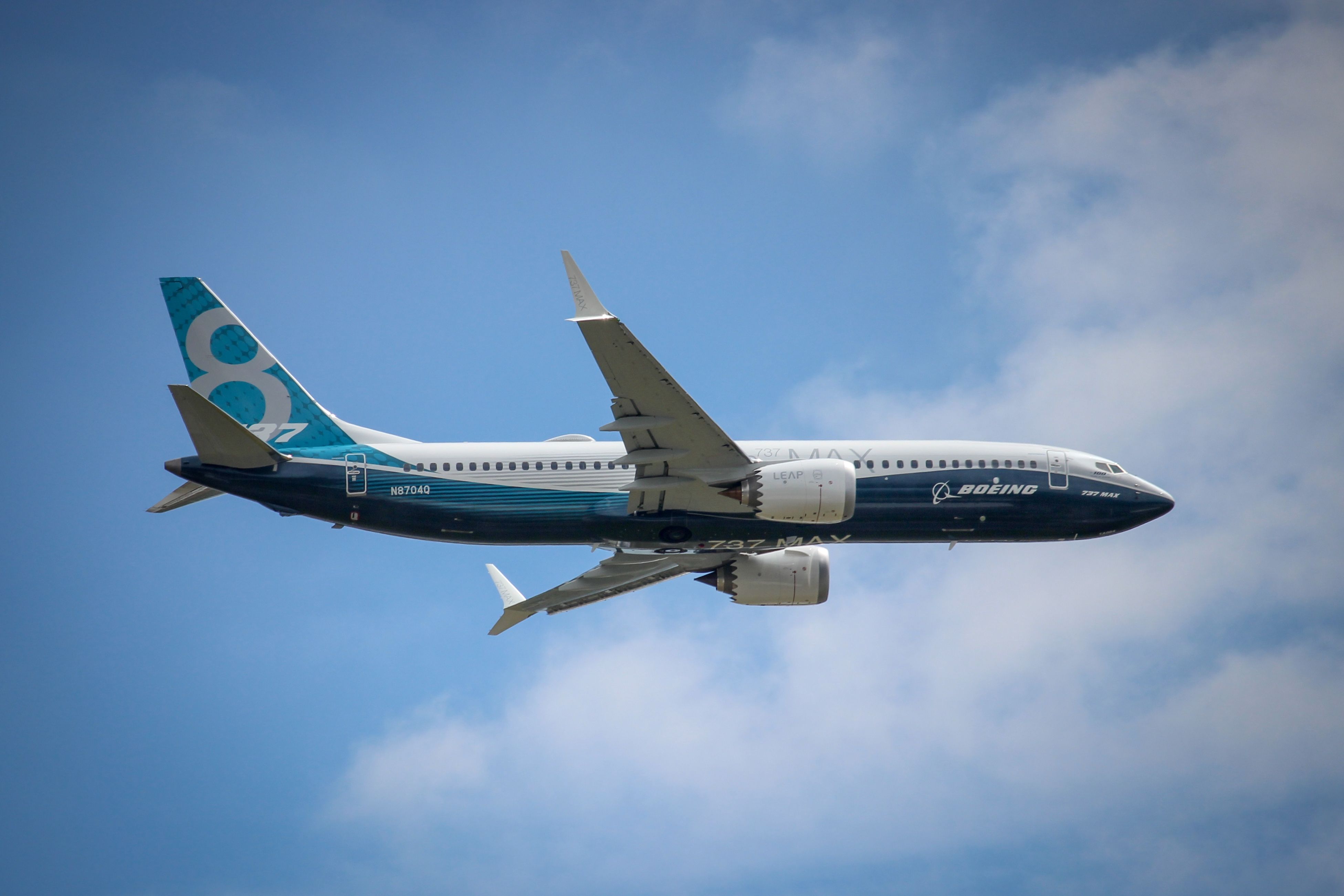Boeing has reportedly returned a brand-new 737 MAX 8 aircraft originally destined for a Chinese airline back to the United States due to the trade war between the world’s two largest economies. The news comes shortly after the Chinese government ordered its carriers not to take delivery of Boeing aircraft. A report by Reuters noted that in March 2025, just weeks before the Trump administration announced tariffs on Chinese goods, Boeing had flown three new 737 MAX aircraft from Seattle to Zhoushan — an indication it was expecting business to proceed as usual.
Now, the return of one of several jets awaiting final delivery to Chinese operators at the Zhoushan final assembly line highlights the latest disruption in aircraft deliveries. A Xiamen Air-Painted 737 MAX Returns Flight tracking data from Flightradar24.com shows that the first 737 MAX 8 aircraft painted in Xiamen Air livery recently departed Boeing’s Zhoushan completion center in China, heading to Guam on the first leg of its return journey across the Pacific.

Just a month earlier, the aircraft had flown from Seattle to Zhoushan, with refueling stops in Hawaii and Guam, according to the Reuters report. According to ch-aviation data, Xiamen Air currently has a total of 22 Boeing 737 MAX 8 narrowbodies in its fleet, with an average age of 5 years. The data also indicates the Chinese carrier is currently awaiting seven 737 MAX 8 deliveries from the American aircraft manufacturer.
But due to the imposed tariffs, it is unlikely that the carrier will take delivery of the remaining aircraft. Earlier this month, US President Donald Trump increased baseline tariffs on Chinese imports to 145%. In response, China retaliated with a 125% tariff on US goods.
For a Chinese airline, taking delivery of a Boeing jet under these conditions could be financially devastating, especially considering that a new 737 MAX is valued at approximately $55 million, as per Reuters . Aviation Meets Geopolitics In an exclusive report by Bloomberg published on April 15, 2025, which cited people familiar with the matter, the Chinese government told its airlines not to take Boeing deliveries amidst its trade war with the US. The report added that the order to halt aircraft deliveries came after China retaliated with its own heightened tariffs against US-made goods.
In China, the National Development and Reform Commission (NDRC) controls airlines’ ability to take delivery of new aircraft. On April 8, 2025, the state-run Chinese news agency, Yicai Global , reported that China's retaliatory tariffs will "significantly raise" the cost of the Boeing aircraft for Chinese airlines. Now, the tariff war could leave many aircraft deliveries in limbo, once again impacting sales of Boeing’s best-selling 737 MAX and making opportunities for other aircraft manufacturers in the Chinese market.
According to Boeing’s orders and deliveries site, the plane maker has 6,319 unfilled gross orders, with Chinese airlines having a gross backlog of 130 aircraft, or just 2% of the total. The tariff war, which began escalating in early April, has now directly impacted Boeing. Opportunity For Airbus And COMAC The ongoing tariff war between the US and China could create more opportunities for Airbus and COMAC to boost aircraft sales in the Chinese market.
In the short term, Chinese airlines may prefer leasing aircraft rather than buying them outright. Over the long term, they could shift their purchasing strategies toward Airbus and domestic manufacturer Comac . The state-run publication Yicai also noted that tariffs may bring new opportunities for the Chinese C919 narrowbody, a direct Boeing 737 MAX rival.
These are now being delivered to and operated by Air China, China Eastern, and China Southern. China is investing heavily in its efforts to develop its own aviation industry. Of course, the Chinese COMAC C919 aircraft are deeply reliant on US and European engines, avionics, flight control systems, and other systems, as few of their inner workings are Chinese products.
Therefore, Chinese airlines might turn to the European aircraft manufacturer Airbus..
Technology

Boeing Flies 737 MAX Aircraft Back To The US After China Bans Deliveries

The news comes shortly after the Chinese government ordered its carriers not to take delivery of Boeing aircraft.















